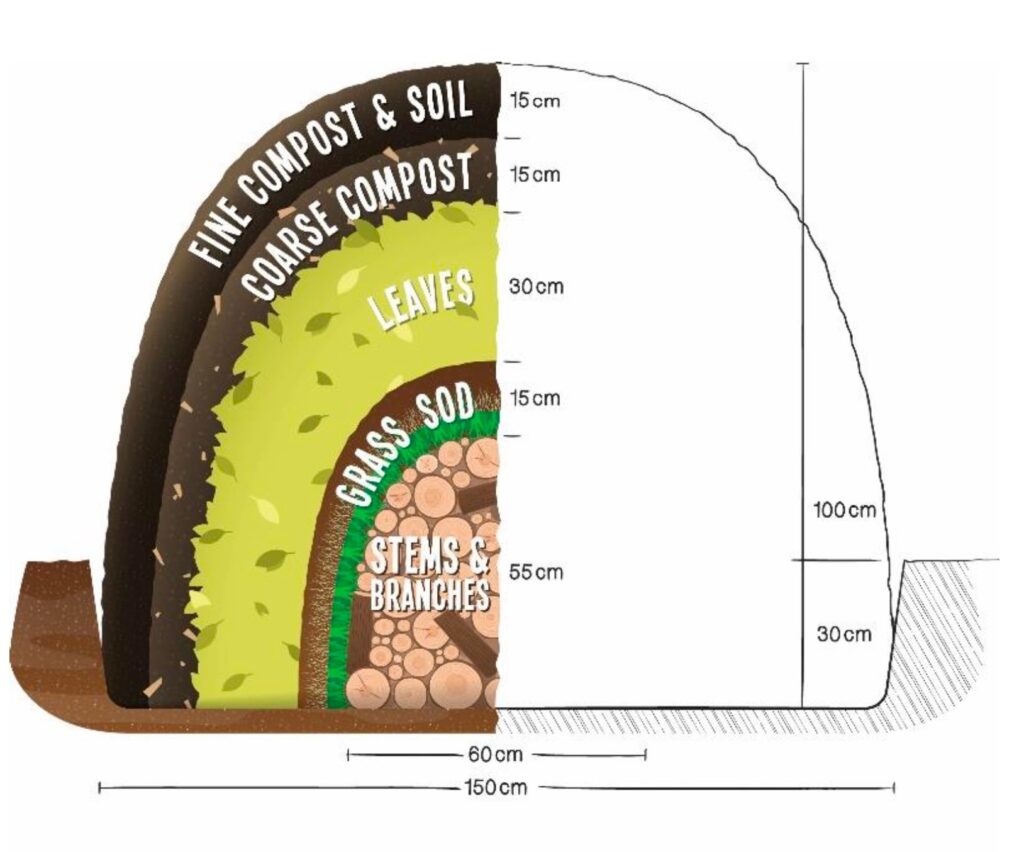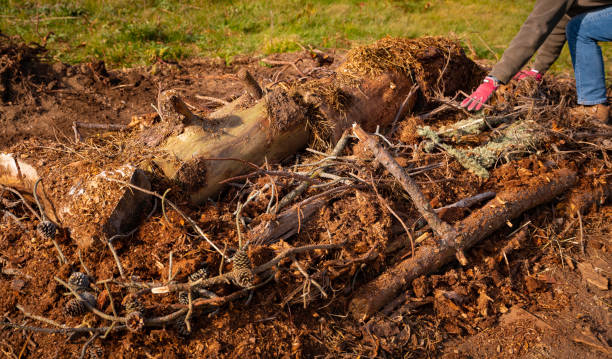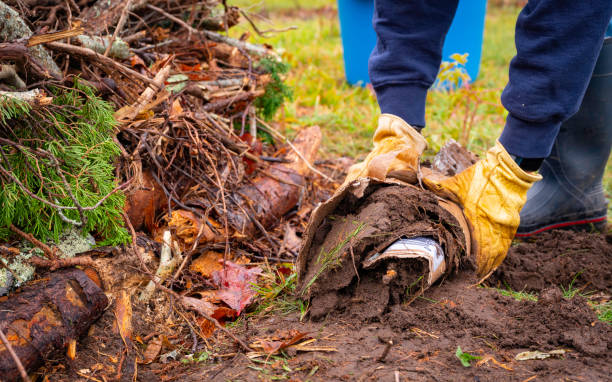


Ask A Master Gardener article published in the News-Review October 18, 2024
By: Mackenzi Hall
Hugelkultur: What’s It All About?
Question: The property I just purchased does not have a garden area set up and the ground is made up of very hard clay. I was talking with a friend of mine who said I should look into Hugelkultur because I would be able to create a fertile garden bed above the ground. I have never heard of this term before. Is it something a novice gardener can handle, and is it something I should start this winter in order for it to be ready for spring?
Answer: Although hugelkultur has been around for centuries, it wasn’t until recently that it has become a much more mainstream practice. “Hugelkultur” translated means “hugel” (hill) – “kultur” (culture) and is simply a way of creating sustainable garden beds out of decaying organic materials such as wood, straw and compost. This innovative method has gained popularity for its sustainable and eco-friendly approach to creating soil fertility. It not only improves your soil, but also conserves water and is a perfect approach for the beginner gardener. Here’s everything you need to know to implement hugelkultur this fall and winter:
To begin, start by selecting a suitable location for the raised bed. Choose a sunny spot with good drainage; this will promote decomposition and plant growth. Gather up as much woody materials and organic matter as you can to build the bed, ensuring a balance of carbon-rich and nitrogen-rich components for efficient decomposition.
The foundation of your bed should consist of organic materials such as logs, branches, and twigs, which are layered to form a raised mound. The larger pieces of wood provide a framework for the bed and facilitate air circulation, while smaller organic matter such as leaves, straw, and compost are added on top. Over time, the organic materials break down, releasing nutrients, creating a fertile growing environment. The gradual breakdown of wood also promotes the activity of beneficial microorganisms and earthworms, further enhancing soil fertility.
The raised nature of hugelkultur beds helps to retain moisture, reducing the need for frequent watering in the summer. The decaying wood acts like a sponge, absorbing and holding water, and having a good mulch layer will prevent water from evaporating as quickly.
Since you will begin this winter, consider planting cover crops to help protect the soil and prevent erosion. Crops such as clover and hairy vetch can be sown directly onto the beds to promote soil structure and fertility during the colder months. You can also apply a layer of mulch to help insulate the beds and protect them from extreme temperature fluctuations. Organic mulches, such as straw, leaves, or wood chips, provide a protective barrier that retains moisture and maintains soil temperature. This will create a more favorable environment for soil microorganisms and plant roots.
Once established, your beds will require minimal maintenance and can promote plant growth for several years. The decomposition process will continually replenish the soil with nutrients and will attract earthworms and other beneficial insects. Ultimately, this reduces the need for external inputs like synthetic fertilizers and enhances long-term sustainability.
Whether you’re a seasoned gardener or new to permaculture gardening practices, hugelkultur offers a fun and effective approach to improving soil fertility. By embracing the natural processes of decomposition, you can build healthy, productive garden beds while minimizing environmental impact. If you struggle with less than ideal soil conditions, which so many of us in Douglas County do, consider implementing hugelkultur in your garden to experience the benefits of this innovative and time tested gardening technique.
Do you have a gardening or insect question? Contact the Douglas County Master Gardeners at douglasmg@oregonstate.edu or 541-672-4461 or visit 1134 SE Douglas Ave., Roseburg. Douglas County Master Gardeners are trained volunteers who help the OSU Extension Service serve the people of Douglas County.

